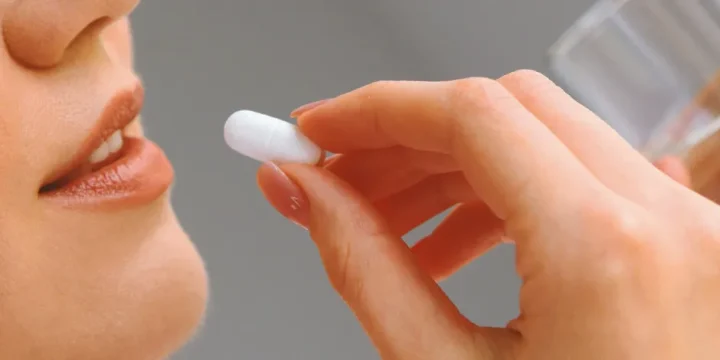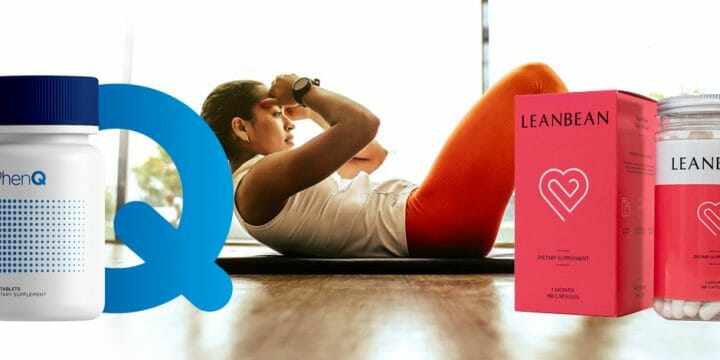In my years of medical practice, I've encountered numerous patients who have utilized injectable testosterone to address hypogonadism.
These treatments often include testosterone cypionate and enanthate.
Driven by a professional interest, I conducted an extensive review of the literature to understand how testosterone cypionate and enanthate function.
My investigation, which included a multitude of studies, revealed that while there are commonalities between them, they also possess distinct differences.
Below, I present my clinical insights on testosterone cypionate versus enanthate.
Let's explore these findings.
Quick Summary
- To understand the differences and effects of testosterone cypionate versus enanthate, we compare their chemical structures, half-lives, and impacts on muscle growth.
- While both testosterone cypionate and enanthate are used to treat low testosterone levels, they differ in their ester length and the type of carrier oil used, affecting their absorption and release into the body.
- According to the National Institute of Health, testosterone is crucial for the development of male reproductive organs and secondary sexual characteristics, including muscle development.
- Personally, I find that the choice between testosterone cypionate and enanthate should be tailored to the individual's needs and medical history, as both have unique benefits and potential side effects.
Testosterone Cypionate vs. Enanthate

The steroid hormone testosterone is a significant sex hormone and an anabolic steroid.
According to National Institute of Health (NHI), it is accountable for the growth of male reproductive organs, bone density, and secondary sexual traits such as muscular development, body hair growth, and reduced weight gain [1].
Commercial steroids such as testosterone cypionate and enanthate are used in bodybuilding to boost muscle mass.
In my personal experience, and corroborated by conversations with peers, both steroids seem to work wonders in muscle building. However, I've noticed that the effects of cypionate last a bit longer for some, which is in line with what several researchers suggest.
In addition, enanthate is better known and more frequently utilized since it is available even outside of the United States.
What Is Testosterone Enanthate?
Testosterone enanthate is an intramuscular testosterone treatment for low testosterone in men.
A study from National Library of Medicine shows that in females, it is also employed to combat breast cancer which has progressed to other body regions [2].
This medicine is administered into your buttock muscles and has a long half-life, so it is only needed once or twice per month.
Enanthate is sold under the brand name Delatestryl.
According to NIH, this medication is an androgen and an anabolic steroid [3]. It is the most often used and oldest synthetic testosterone and is suitable for men of all ages.
Testosterone Enanthate's Role
During my years of practice, I've seen testosterone enanthate play a pivotal role in muscle growth among my patients. It's like giving a green light to the body's protein synthesis machinery, leading to impressive muscle development.
Testosterone increases muscle strength, lean muscle mass, and athletic performance.
Speaking from experience, while T enanthate can be a game-changer for muscle gains, it's not without its downsides. Some of my patients have reported acne, a sudden increase in hair growth, changes in their voice, and fluctuations in libido.
In order to get the best results, testosterone enanthate usage should be closely monitored by a healthcare professional.
Effects on Gonadotropins and Vitamin D3
Different doses of testosterone enanthate can have distinct effects on blood lipid profiles, gonadotropins, and levels of 25-hydroxyvitamin D3:
- Blood Lipid Profile: Higher doses of testosterone enanthate are associated with adverse changes in the lipid profile, including increased LDL cholesterol and decreased HDL cholesterol levels. These alterations can elevate the risk of atherosclerosis and cardiovascular disease, emphasizing the importance of monitoring lipid levels during testosterone therapy.
- Gonadotropins: Testosterone enanthate at higher doses often suppresses the production of endogenous gonadotropins, like luteinizing hormone (LH) and follicle-stimulating hormone (FSH). This can lead to reduced testicular function and potential fertility issues in males. Lower doses may minimize this suppression to some extent.
- 25-Hydroxyvitamin D3: Testosterone enanthate may not have a direct impact on 25-hydroxyvitamin D3 levels, but it can indirectly affect vitamin D metabolism by influencing fat mass and muscle mass. Maintaining adequate vitamin D levels is crucial for overall health, including bone health and immune function.
What Is Testosterone Cypionate?

Testosterone cypionate is a synthetic hormone used to treat male hypogonadism, a disorder caused by low male sex hormone levels.
As per the National Center of Biotechnological Information, testosterone cypionate is a self-injectable T found under the brand name Depo-testosterone [4].
Depo-testosterone treats both types of hypogonadism – primary and hypogonadotropic hypogonadism.
However, when compared to testosterone enanthate, cypionate has less testosterone.
Related Articles:
Diving into TRT – Cypionate and Enanthate Similarities
Testosterone enanthate and cypionate are two highly comparable and recommended therapy choices.
Let's explore the similarities between the two compounds:
- Both testosterone cypionate and enanthate are synthetic testosterone.
- Both steroids are injected into the muscles.
- Both are androgenic medicines, as well as testosterone esters.
- They are slow-responding synthetic testosterones.
- They may lead to adverse effects, such as headaches, nausea, nervousness, and acne.
Discover the similarities between testosterone cypionate and enanthate, but for a superior and optimized hormone therapy, check out our review of Fountain TRT, a product designed to help men boost their testosterone up to a healthy, normal level using testosterone replacement therapy (TRT).
What Is the Difference Between Testosterone Cypionate and Enanthate?

The difference between testosterone cypionate and enanthate is in their chemical structure, half-life, and the type of carrier oil they use.
Let's look at the differences in depth.
Suitability
From what I've observed in my practice, testosterone cypionate tends to be a bit less flexible in its use, being suitable only for men over 18.
On the other hand, enanthate is versatile and safe for men of all ages, even the elderly.
Chemical Structure
As per a study from SciencesDirect, the ester chains of testosterone cypionate and enanthate are eight and seven carbons long, respectively.
Because of this difference, cypionate has a longer half-life than enanthate [5].
Moreover, enanthate is lighter than cypionate and has more testosterone per gram due to its 7-carbon ester and one additional carbon atom.
While the ester determines the active life of testosterone, the ester group determines its solubility in oil and water.
The more carbons any ester group contains, the more soluble it is in oil and the less soluble it is in water, thereby slowing its release into the circulation.
For a safe and optimal increase in testosterone levels, we advise our patients to check our recommended testosterone boosters below:
Carrier Oil

Another significant distinction is the carrier oil used in diluting both testosterone enanthate and cypionate.
Sesame Oil
Sesame oil thickens testosterone enanthate, making its frequent injections agonizing.
Long-term patient satisfaction with this treatment is also a concern since administering the injection takes time.
According to NHI, some people may have painful lumps in the injection site due to testosterone enanthate's high viscosity [6].
Olive Oil and Cottonseed Oil
Because olive oil and cottonseed oil are much more fluid, they simplify the process of injecting testosterone cypionate subcutaneously.
Subcutaneous injections are much less irritating than intramuscular injections.
Furthermore, the slower absorption promotes stability, reduces the conversion of testosterone into estradiol, and reduces the adverse effects of excessive estrogen production.
As per a study from the National Center of Biotechnological Information, these may include mood swings, gynecomastia, and fluid retention [7].
"Testosterone Enanthate comprises the stabilizer Chlorobutanol, which is a recognized irritant in high quantities. Because of its possible irritative action, it is normally only used at concentrations of up to 0.5 percent."
- Robert Stevens, Bachelor of Medicine, Bachelor of Surgery
FAQs
Is Testosterone Cypionate the Same as Testosterone Enanthate?
No, testosterone cypionate is not the same as testosterone enanthate. They differ in structure, type of injection, and the carrier oil used.
Can I Switch From Cypionate to Enanthate?
Yes, you can switch between testosterone cypionate and enanthate. They both have the same effect on testosterone.
Which Testosterone Is Best for Testosterone Replacement Therapy?
Testosterone cypionate is the best for testosterone replacement therapy, as it has a long half-life and is the most potent form of testosterone.
Which Form of Testosterone Is Most Effective?
The most effective form of testosterone is testosterone suspension. It has no ester and is known as a potent mass agent.
References:
- https://www.ncbi.nlm.nih.gov/books/NBK526128/
- https://www.ncbi.nlm.nih.gov/pmc/articles/PMC4266340/
- https://pubchem.ncbi.nlm.nih.gov/compound/Testosterone-enanthate
- https://pubchem.ncbi.nlm.nih.gov/compound/Testosterone-cypionate
- https://www.sciencedirect.com/topics/medicine-and-dentistry/testosterone-ester
- https://www.ncbi.nlm.nih.gov/pmc/articles/PMC9006970/
- https://pubmed.ncbi.nlm.nih.gov/28379417/
About The Author
You May Also Like






